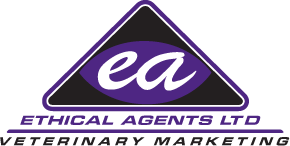Frequently Asked Questions
Electrolytes are very confusing. How do I know if my horse sweats excessively?
All horses, and people, sweat every day. Excessive sweating in horses is not from one brief burst of activity but from prolonged work such as in endurance work or long slow training methods, eg eventers, standardbred racehorses.
If a cat walks over a floor recently washed down with SteriGene® and then licks its paws, will it come to any harm?
No
Is it true that iron supplementation is safer by mouth than by injection?
Definitely. This is because the transport mechanism in the gut cells is overloaded by too much iron leaving the excess to accumulate in the cell. This is not a problem as cells are turned over in 48 hours with the old cells being shed into the gut and being passed out with faeces. Injectable iron is very toxic but oral iron preparations are extremely safe, especially if they are chelated.
My horse has a cut on its leg. Which spray should I use to help it heal?
It depends on the age of the cut. Fresh clean wounds are best treated with Chloromide as it has antiseptics, fly repellents and a bittering agent to stop licking. If the wound is older then Debrisol has enzymes that gently remove dead and decaying tissue. Foe a deeper ulcer Wound Powder will promote granulation tissue.
Of all the oral milk fever treatments around Calol® seems to work much faster in treating the cow. Is this right and is there a reason for it?
Yes, it is true. This is because Calol® can safely mobilise the body calcium (from bones) of the cow, so she can correct her own problem. This action is much quicker than actual calcium absorption from the gut.
I find Calol® does not pour as quickly as some other products.
This comparison is very much overrated, but Calol® is deliberately thick for safety reasons. Milk fever cows can have difficulty swallowing liquids. However action is much more rapid and there is more than enough in a bottle for one treatment. Do not waste time squeezing out the last drop, keep it and store for future use. If you use a lot you will eventually get a free bottle. I hope the suppliers do not read this!
SteriGene® is much safer to use than gluteraldehyde but how does the sterilisation time compare?
TriGene® 10 minutes, gluteraldehyde 3-6 hours.
What are chelated minerals and why are they preferable?
They are minerals bound in with an organic molecule, as the animal receives them in nature (plants bind minerals like iron and that is how a herbivore gets supplementation naturally). Chelated minerals are digested much more completely, cause less irritation and also are a lot less toxic as the body only absorbs what it needs.
Why give Calol® when I give a bottle under the skin?
Forget the bottle under the skin! (Unless the cow cannot swallow and you are not skilled giving it in the vein). An extra bottle under the skin does not affect survival but can lead to nasty abscesses. Calol® is easier to give, quicker to work, more hygienic and longer acting than a bottle under the skin.
Why should I feed supplements to my horse if it is paddock trained?
It depends on the quality of the pasture. Most horse paddocks are "horse sick" and so do not contain the required amounts of nutrients. These types of paddocks are also heavily infested with worms so both regular worming and supplementary feeding of vitamins and minerals are required.
Will SteriGene® kill Cryptosporidia?
Yes
